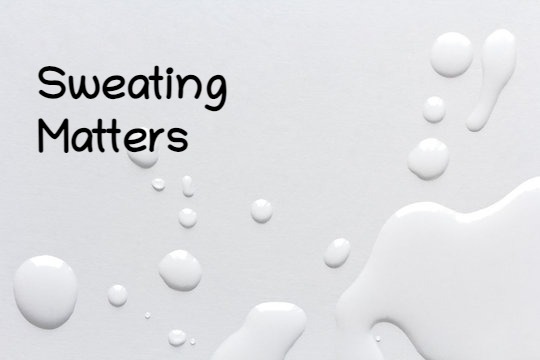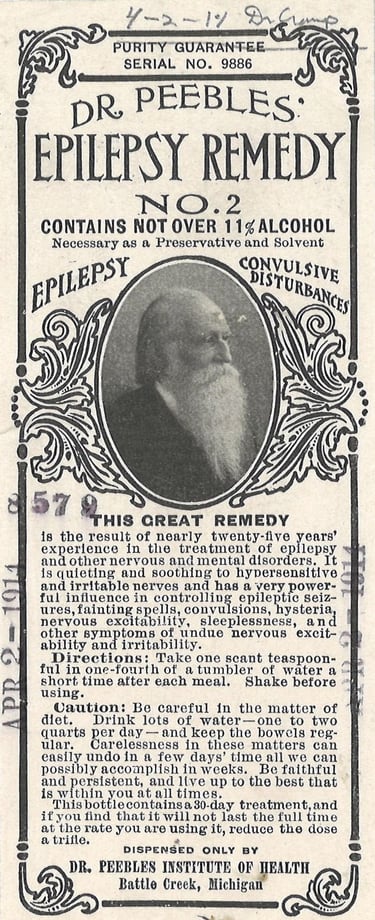

Helping you get to a drier lifestyle
For Hyperhidrosis
Sweating Matters Blog
Keeping You Current with What Matters in Hyperhidrosis


Rate the Sweating Matters blog / More Information
Come Back Soon! We post regularly.
Helping Create Drier Lifestyles
14 July 2024
Hyperhidrosis Treatments: Snake Oils and Placebos
A placebo is a substance that elicits a positive effect due to the individual's perception of its benefit, rather than any active ingredient. This isn't necessarily bad, as long as the treatment seems to work, right?
Well, when it comes to treating hyperhidrosis, placebo effects are rare or non-existent. The key word in the definition of a placebo is "perception"—the belief that something works. Placebos are more common in treating psychological conditions, like depression or anxiety, or even in pain management. However, hyperhidrosis is a physical condition involving excessive sweating. A proven treatment will reduce or stop sweating altogether; if it doesn’t, it's not working. There's little room for a placebo effect in this scenario.
On the other hand, "snake oil" refers to substances that have no effect on a medical condition despite claims of therapeutic benefits. The only result is often profit for the seller, not relief for the user.
The practices of medicine and pharmacy are driven by scientific and clinical evidence. Without such evidence, recommending a product for treating a specific condition is challenging. This scientific approach has helped drive out medical charlatans or snake oil salesmen.
For centuries, Native American and Asian archers used the deadly alkaloids of the monkshood root as arrowhead poisons. In the 1880s, these compounds were marketed as one of the most widely advertised quack liniments: St. Jacobs Oil. This 2% aconite tincture, mixed with turpentine, ether, and alcohol, was sold as an antineuralgic despite its lack of real efficacy.
So-called Hyperhidrosis Treatments
We've encountered many substances claimed to relieve excessive sweating. These so-called hyperhidrosis treatments lack clinical evidence to support their claims, which raises concerns about their legitimacy. Here are a few of these treatments, along with the claims associated with them:
Vinegar / Apple Cider vinegar (topical or oral) (drinking this "vinegar cocktail" before each meal or at least every night can make a big difference).
Tomato juice (shrink pores and reduces chronic sweating by applying for at least 10 minutes a day)
Potatoes ("potassium-rich foods like potatoes...reverse this process to help push water out of the body." Simply rub a slice a few minutes a day to feel its drying effects on the underarms)
Wheatgrass juice ("by neutralizing and diluting the toxins in the blood, drinking just a tablespoon of wheatgrass a day helps fight sweat")
A diet rich in silicon and vitamin B
Water fasting ("decreases sympathetic nervous tone, thereby reducing excessive sweating")
Astragalus (Milk Vetch) tea
Rehmannia Glutinosa tea ("strengthens kidneys and fights off facial hyperhidrosis")
Schisandra berry tea ("tones up adrenal glands")
Sage tea ("thiamine and magnesium content soothes sweat glands; rosmarinic acid inhibits excessive production of sweat")
Osha (Ligusticum porter, Colorado cough root, Indian root, Mountain ginseng) ("capable of restraining the virus and bacteria that cause night sweats")
Nat mur, Lupulus, Castoreum, Argentum nit, Syphilinum
Asparagus (a chemical called asparagin decreases sweat production)
Salt ("carry around a bottle of crystals to use whenever you feel a sweat session coming on."
And if that doesn't work: try equal parts of salt and lime juice; a "citrus rub" to reduce sweating.
If you are aware of any hyperhidrosis "snake oils" or treatments that don't work, we'd love to hear from you. Additionally, if you have a personal story about a "snake oil" that you used, feel free to share your experience with us. And if any of these treatments have worked for you, let us know as well (click the opinion button below). We will share these experiences on our Sweating Matters blog while maintaining your anonymity.
"The chemical breakdown of Dr Peeples’ Epilepsy Remedy was 8.4% alcohol and roughly 22% ammonia, potassium, sodium, bromide, and chloride. As the AMA noted, “The use of bromid[e]s in the treatment of epilepsy has been known for years” but was, at best, palliative—a far cry from Peebles’ claim that the compound offered a cure. The drug acted as a sedative, generally tending to suppress some seizures. Despite this effect, the AMA did not recommend Dr Peebles’ Epilepsy Remedy to epileptics because the “indiscriminate use” of bromides was dangerous. Early studies had found that long-term use of bromides caused irritability, depression, hallucinations, and homicidal tendencies."
(from AMA Journal of Ethics: Illuminating the Art of Medicine)















